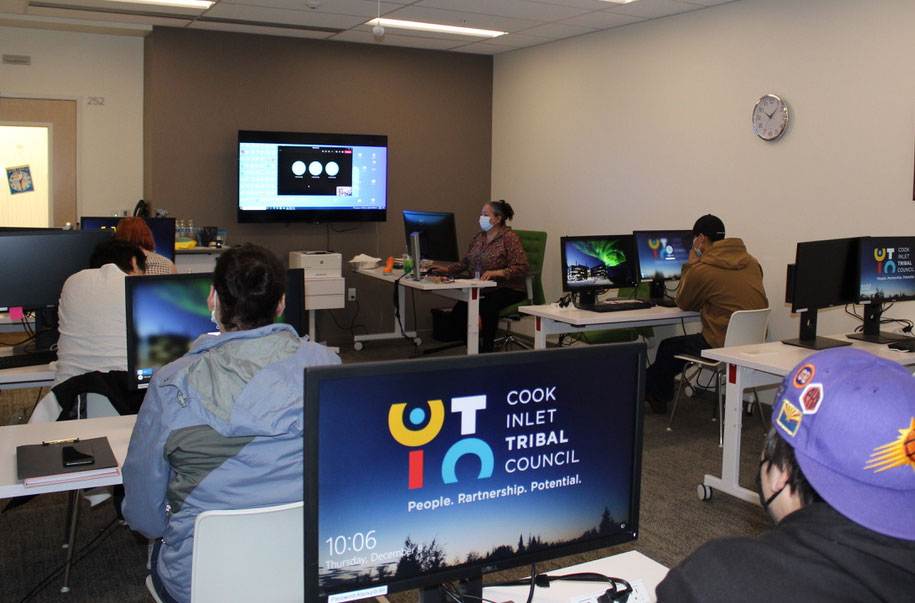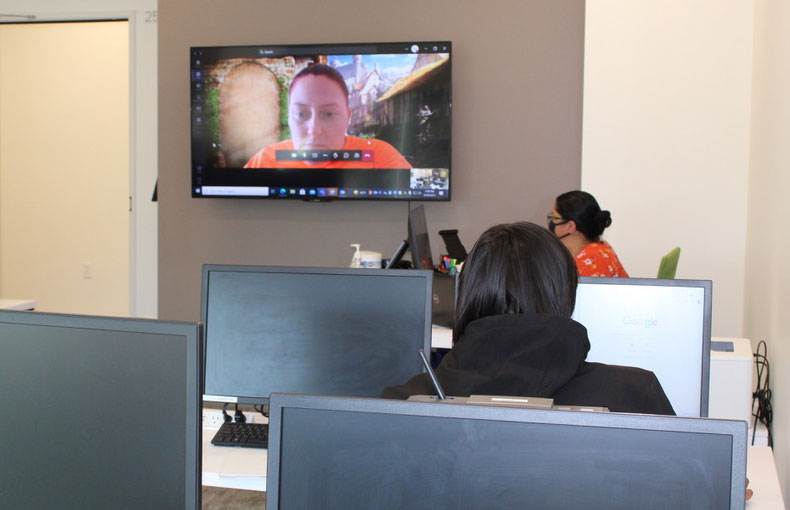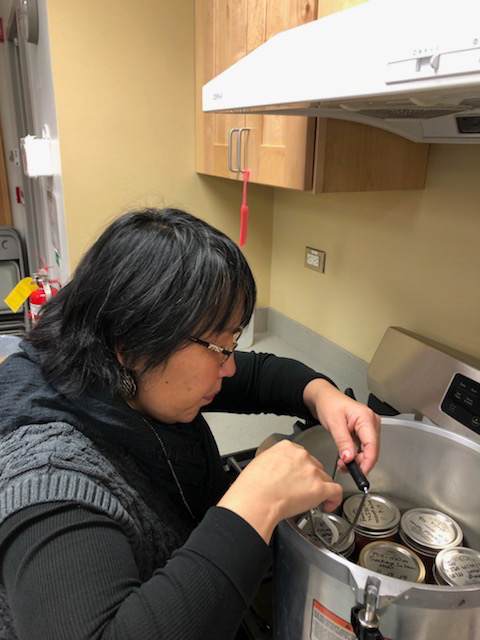23 Jun Skills for Living Life Successfully
Thanks to new classes and increased flexibility, CITC’s life-focused classes see major increase in participation

Bea Peterson worked hard on developing lesson plans for CITC’s Life Skills workshops—but she won’t hesitate to throw an entire curriculum out the window.
Recently, three older participants attended Bea’s Money Management workshop. The class focuses on how to develop a budget and build good credit, among other topics. But the participants had grown up without much income. They were reluctant to talk about their experiences with money.
“To be poor, that comes with a sense of shame, sometimes,” pointed out Bea, CITC’s Life Skills instructor. “Sometimes you have to veer off the curriculum to meet the needs of your people. So we spent that whole two-hour workshop on shame and how it affected us. Now that we’ve talked about that, we can figure out how to move forward.”
Even when she ditches her plan, Bea’s workshops—along with Computer Lab sessions taught by Computer Lab Resource Assistant Karla Lawrence—have seen a 54 percent increase in attendance between two quarters.
Together Again

Part of that increase is due to the simple fact that, thanks to the easing of restrictions around COVID-19, CITC can once again offer in-person workshops.
But virtual class offerings are still in vogue; it’s simply easier for individuals who work or take care of children to attend classes remotely. So, many Life Skills workshops are offered both in-person and virtually.
Still, nothing beats personal connection, said Bea.
“In person, you build a relationship that’s focused on the needs of people attending the workshops. When you’re doing that, they start self-referring to other workshops and services. That connection makes people want to be here more.”
Promoting Self-Sufficiency
Once they’re here, workshop participants are greeted with an array of new classes—from workshops that will get them ready to find and start a new job, to cultural sessions that teach attendees to bead.
“Once a month, we try to include a cultural class so it’s not all working hard. We do some playing, too,” Bea said.
Life Skills also now offers workshops that can help people establish their homes. With “Finding & Furnishing Your Home,” “Landlord/Tenant Act,” and “General Home Maintenance,” the Life Skills courses aim to equip people with more than just basic information. By offering these classes, Bea hopes to support her students’ self sufficiency.
“Once you get a home, what do you do with it? Teaching classics on topics that surround the home—maintaining it, budgeting, how to interact with your landlord—add those together, and you’ve got some powerful tools,” Bea elaborated. “It’s one thing to help a person get an apartment. But to support them in maintaining their home—that’s what promotes resiliency.”

Life Skills for Life’s Realities
In a given Life Skills or Computer Lab workshop, Bea and Karla might have a few students attending in person, a couple more students joining the class virtually, and one student simply listening in, over the phone.
If a student needs access to daycare, they can drop their young ones off with CITC’s onsite Nahtsahda Child Care Center. “Or bring them with you,” Bea said. “Give them toys to play with while you learn to type. We go with the flow to meet our students’ needs and realities.”
As the instructors welcome students back to classes in the wake of the COVID-19 pandemic, that kind of flexibility is key to helping individuals find success through the classes CITC offers.
“We understand that people are just trying to survive,” said Charlene Miles, CITC education and training manager. “Our job is to meet people where they are at, help them identify their strengths, and transfer their skills to a place where they can thrive.”
Life Skills and Computer Lab workshops are open to anyone enrolled with CITC services. Individuals may earn a Workforce Readiness certificate by taking qualified workshops. Incentives and support for taking classes are available in some cases.
To sign up for Life Skills or Computer Lab workshops, contact (907) 793-3351 or lifeskills@citci.org. Visit the CITC calendar for upcoming workshops and other classes.


